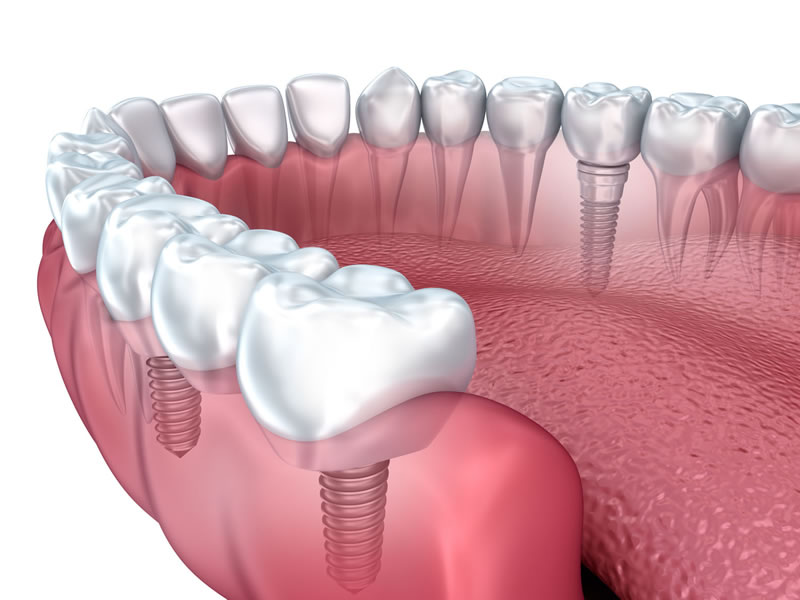Many patients ask, what happens if a dental implant fails? While dental implants are known for their high success rate, failures can occasionally occur due to various reasons. Understanding the causes, symptoms, and corrective measures for Dental implants failure is crucial in ensuring long-term oral health. Knowing what to watch for can help you take quick action and preserve your smile.
Common Causes of Dental Implant Failure:
Dental implants may fail shortly after surgery or years later, depending on the circumstances. Early and late failures typically have different causes.
- Early failure (within weeks or months): Often due to poor healing, infection, or lack of bone integration
- Late failure (after months or years): Can be caused by poor oral hygiene, chronic stress on the implant, or bone loss
- Smoking, diabetes, and certain medications can increase the risk
- Improper placement or insufficient bone support also contribute
Identifying the cause is the first step in determining the appropriate treatment and preventing recurrence.
Warning Signs of Implant Failure:
Recognizing the symptoms early can make a significant difference in treatment success. If you notice anything unusual, it’s important to contact your dentist right away.
- Persistent pain or discomfort at the implant site
- Swelling, redness, or signs of gum infection around the implant
- Difficulty chewing or pressure sensitivity
- Movement or looseness of the implant
- Pus discharge or an unpleasant taste near the area
These signs may indicate issues such as peri-implantitis, failed osseointegration, or mechanical failure of the implant components.
What to Do If You Suspect a Problem?
If you think your dental implant might be failing, acting quickly can help save the implant or prevent further complications.
- Contact your dentist immediately to schedule an evaluation
- Avoid chewing on the affected side to reduce stress on the implant
- Keep the area clean by gently brushing and rinsing with salt water or an antibacterial mouthwash
- Follow your dentist’s instructions regarding medications or adjustments
Prompt professional intervention can often resolve early-stage issues and preserve the implant.
Treatment Options for a Failed Implant:
When a dental implant fails, your dentist will evaluate whether it can be saved or needs to be removed and replaced. The treatment plan will depend on the severity and cause of the failure.
- Nonsurgical treatment may include deep cleaning or antibiotics for mild infections
- Surgical removal is sometimes required if the implant is loose or infected
- Bone grafting may be necessary before placing a new implant if bone loss has occurred
- A replacement implant can often be placed after healing, sometimes using advanced techniques for faster recovery
Your dental specialist will determine the best approach to restore your oral health and function.
How to Prevent Implant Failure?
Prevention is key to ensuring the long-term success of your Dental implants Treatment. With the right habits and regular care, the risk of failure can be greatly reduced.
- Practice excellent oral hygiene with daily brushing and flossing
- Visit your dentist every 6 months for checkups and cleanings
- Avoid smoking, which slows healing and weakens bone support
- Wear a night guard if you grind your teeth to protect the implant
- Eat a balanced diet rich in vitamins and minerals that support bone health
Taking these proactive steps ensures that your dental implant remains strong, functional, and integrated for years to come.
In summary, what happens if a dental implant fails depends on how early it's detected and the underlying cause. While implant failure can be concerning, it is often treatable and preventable. By recognizing warning signs, seeking timely care, and maintaining excellent oral hygiene, you can protect your dental investment and enjoy a healthy, confident smile for life.

